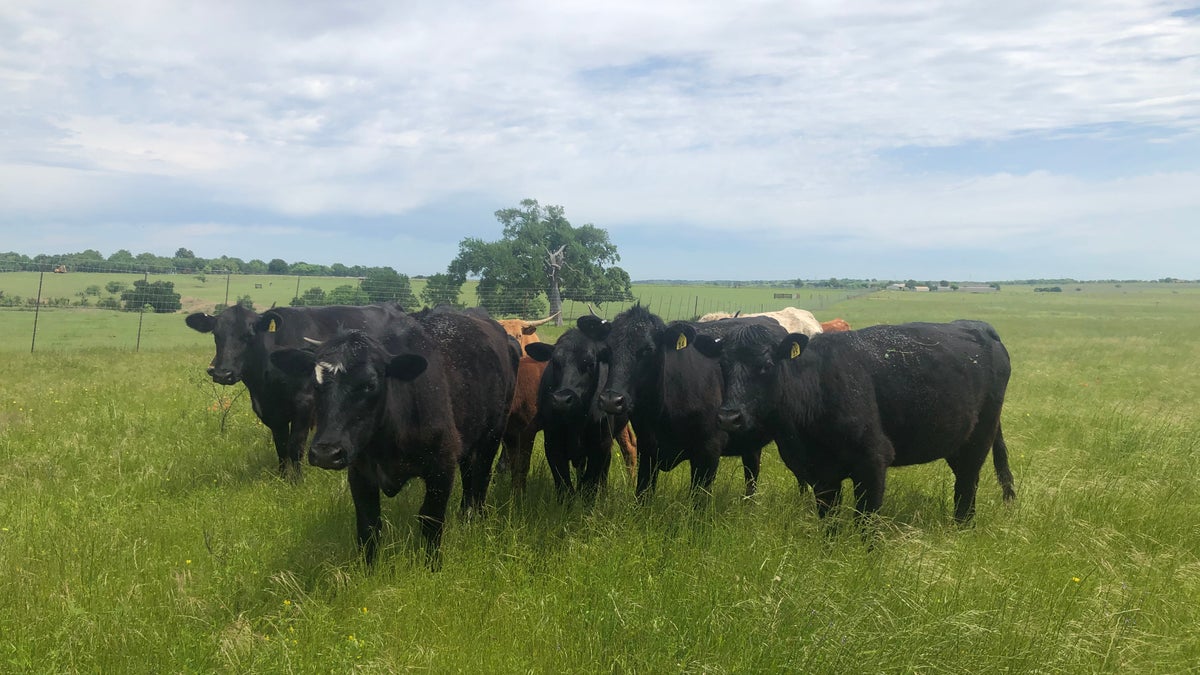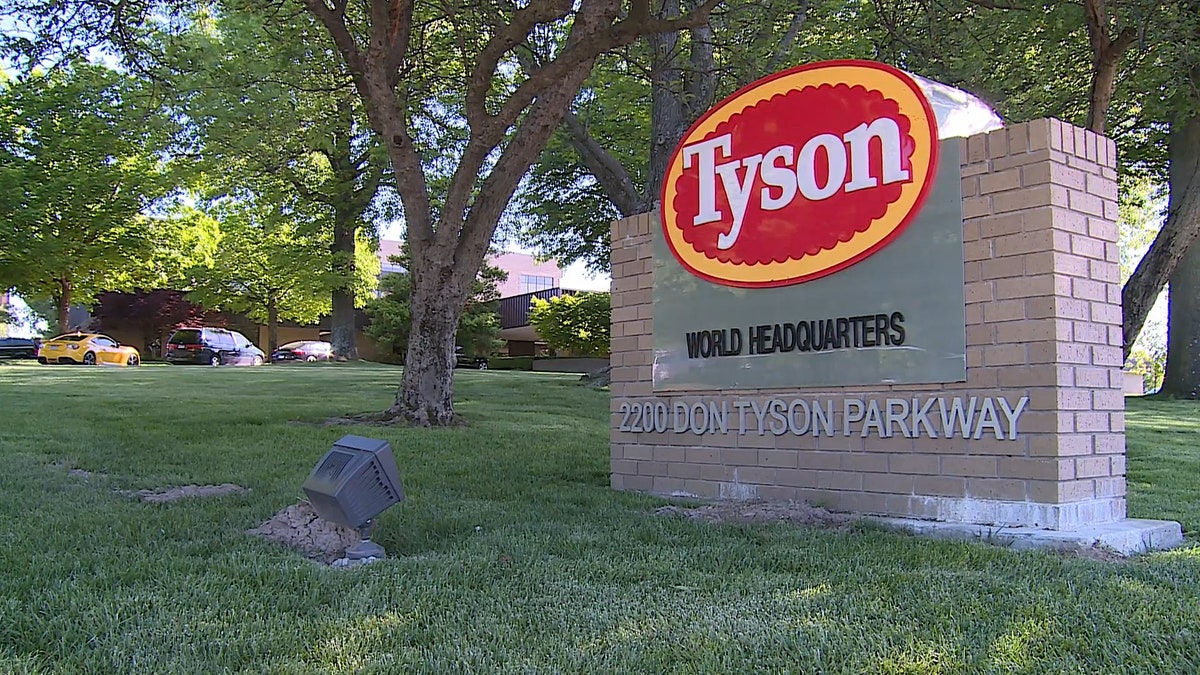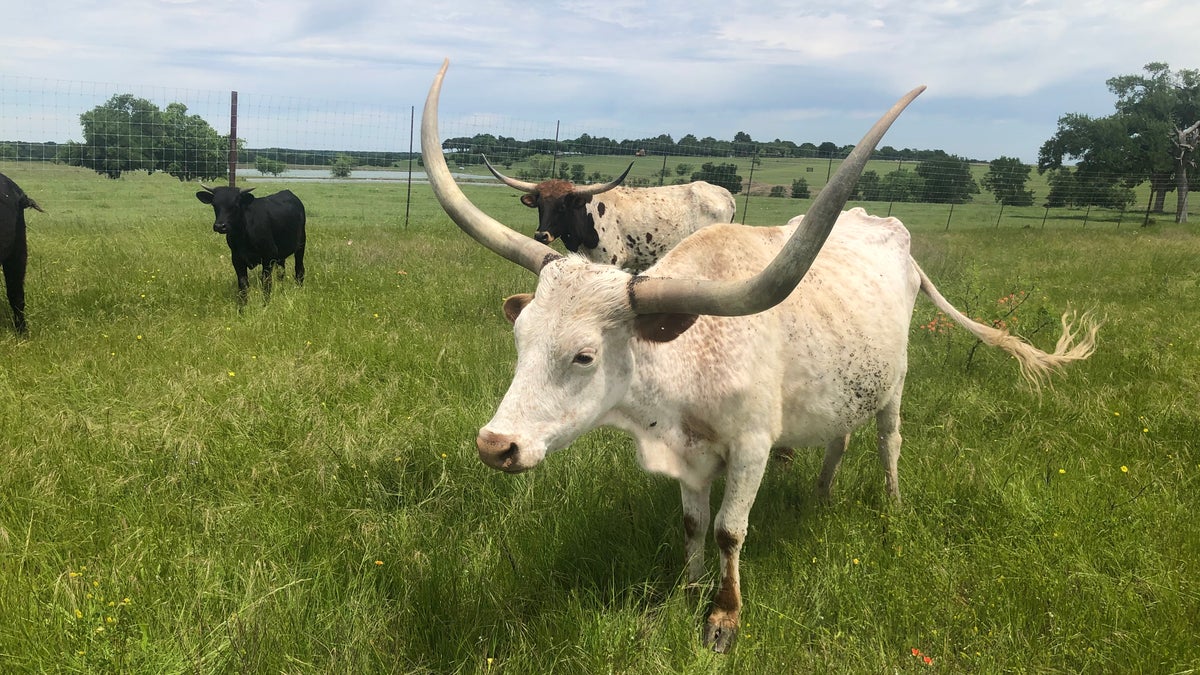COVID-19 could hit beef industry with loss of billions
The National Cattlemen's Beef Association is predicting a $13.6-billion loss for ranchers in the industry.
AUSTIN, Texas -- President Trump signed an executive order Tuesday requiring beef-packing plants to remain open during the coronavirus pandemic -- but beef producers are starting to feel the impact as well.
“We are suffering right now I can tell you, especially on the production side,” Bob McKnight, president of the Texas and Southwestern Cattle Raisers Association (TSCRA), said. “All through the industry, it is a very difficult time for us right now.”
The TSCRA has represented over 17,000 beef cattle producers, ranching families and businesses. These members represented roughly 55,000 people managing about 4 million cattle throughout the southwest, mostly in Texas and Oklahoma.

Beef producers are expected to lose billions as the coronavirus pandemic continues to strain the industry. (Fox News)
The association explained there was “no beef shortage,” but there has been a bottleneck between the producers and the processing plants, delaying the process of getting the product to the shelves.
“It is just the economics of that bottleneck going into the processing facilities and we just can’t get enough product through the pipeline so to speak,” McKnight said. “It has thrown a whole new set of problems at us.”
Many beef processing plants have been shuttering across the country. Among the big names: Tyson, which temporarily closed plants in Iowa and Indiana amid coronavirus concerns.

Tyson was forced to temporarily close meat processing plants in Iowa and Indiana amid COVID-19 concerns. (Tyson Foods, INC.)
The Arkansas-based company had a video on its website telling consumers what has been done at the plant to keep the supply chain intact.
“We have spent countless hours working on social distancing measures, building dividers at a number of work stations and expanding break rooms by erecting tents to simply give us more room,” Hector Gonzalez, senior vice president of U.S. human resources, said. “We have required face coverings and have performed deep cleaning at a number of our facilities.”
McKnight added a lot of the plants are working hard to keep things safe but the supply chain has definitely slowed down.
“Having to space the workers out is understandable, but it also slows the chain speed down and results in less product getting out the door,” McKnight said. “The industry is very innovative and is working on keeping workers safe and getting us back up to speed, we are just hoping this crisis subsides a little.”
The National Cattlemen’s Beef Association predicted the cattle industry will be hit with a $13.6 billion loss due to the pandemic, impacting ranchers across the country.

Cow-Calf producers are expected to lose roughly $110 per head of cattle during the pandemic.
“We are a thin business to begin with and taking those sort of declines is very tough and can be catastrophic is some operations so it is a pretty big hit for us,” McKnight said. “It is historic to see this big of a decline in this short period of time.”
As ranchers wait for the industry to stabilize, McKnight wanted to assure consumers there’s no shortage of meat, saying, “We will not run out of meat in the United States.” He added, “There is a lot of beef there. Hoarding was not and is not necessary, it may just take a little more time to get to you.”
TSCRA also told Fox News ranchers will come out of this, because “they always do.”
CLICK TO DOWNLOAD THE FOX NEWS APP
“Historically, cattle ranchers have been pretty resilient people,” McKnight said. “We will get through this.”
The latest data from Midwest Center for Investigative Reporting showed that over 3,400 reported COVID-19 cases have been tied to 62 meatpacking facilities across the country.









































